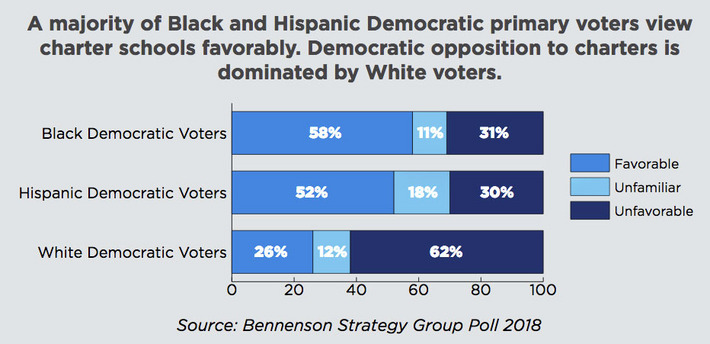
Nov 25, 2019 12:00:00 AM
by Laura Waters
I gasped as I opened the op-ed section of the New York Times and read Senator Cory Booker’s column repudiating his regressive stance on public charter schools. Until he entered the Democratic presidential nominating contest, Booker was one of the nation’s most eloquent supporters for school choice, with his hometown of Newark the proofpoint for the impact of a high-quality charter sector on a struggling school system. But when he entered the primary he hopped on the Sanders/Warren anti-choice wagon, dissolving into a vegan mush of (un)progressive platitudes. Something’s changed. Booker writes,
It is largely up to Democrats—especially those of us in this presidential primary race—to have a better discussion about practical K-12 solutions to ensure that every child in our country can go to a great public school. That discussion needs to include high-achieving public charter schools when local communities call for them.
Many public charter schools have proved to be an effective, targeted tool to give children with few other options a chance to succeed.
My reaction to this (laudable) about-face swung from “finally Booker is owning the remarkable upswing in student achievement in Newark, largely due to the impact of its best-in-the-nation sector of charter schools (like I told him to!)” to “why the hell did he wait until now to call out the other candidates on their union-pandering opposition,” to “boy, was he poorly advised” when, responding to a question about charter schools at a presidential candidate forum sponsored by AFSCME, he said, “we’re seeing an assault on education that is outrageous and unacceptable.”
So what’s the real deal? [pullquote]What persuaded Booker to own his educational legacy in Newark?[/pullquote] A legacy that has transformed one of the worst school districts to the #1 city in America for “beat the odds” high-poverty, high-performance schools by the Center on Reinventing Public Education?
Here are nine guesses.

Here’s the thing: When Sanders/Warren get up there and talk dirt about charter schools in order to endear themselves to union lobbyists, they are distinctly un-woke. They are painting over the messiness and ambiguities of public education to satisfy adults. They are turning their backs on a growing segment of the Democratic party that supports school choice. They are, as Chris Stewart says, genuflecting “to the public relations departments of America’s national teachers unions.”
They are proposing policies that will damage the futures of children who live in cities like Newark and Los Angeles and Chicago and Boston and Philadelphia.
This doesn’t seem very “progressive” to me, nor Democratic. In fact, it seems akin to the Trumpian “build that wall” canard that provokes applause from the unwoke.
We should be better than that.
Booker writes,
The Democratic Party is at its best when we lead with the conviction, above all else, to help people. We fall short of that when we race to embrace poll-tested positions that may help us avoid being yelled at on the internet by an unrepresentative few but don’t reflect the impossible choices many low-income families face.
We’re not at our best right now, union endorsements aside. [pullquote]It’s too late for Booker, but I’d like to imagine that if he had stuck to his authentic education platform from the start he’d be closer to the center of the stage.[/pullquote] Perhaps the winner will have the smarts to be the true progressive who does more than pay lip service to our most disenfranchised Americans (maybe with Booker as VP?).
If not, there’s always 2024.
Laura Waters is the founder and managing editor of New Jersey Education Report, formerly a senior writer/editor with brightbeam. Laura writes about New Jersey and New York education policy and politics. As the daughter of New York City educators and parent of a son with special needs, she writes frequently about the need to listen to families and ensure access to good public school options for all. She is based in New Jersey, where she and her husband have raised four children. She recently finished serving 12 years on her local school board in Lawrence, New Jersey, where she was president for nine of those years. Early in her career, she taught writing to low-income students of color at SUNY Binghamton through an Educational Opportunity Program.
Few issues in education spark more tension and debate than standardized testing. Are they a tool for equity or a burden on students? A necessary check on school systems or a flawed measure of...
Charter schools are public schools with a purpose. Operating independently from traditional school districts, they're tuition-free, open to all students, and publicly funded—but with more flexibility...
Despite the benefits of a diverse teaching force, prospective teachers of color fall out of our leaky preparation pipeline at every stage: preparation, hiring, induction, and retention. Here’s what...
Ed Post is the flagship website platform of brightbeam, a 501(c3) network of education activists and influencers demanding a better education and a brighter future for every child.
© 2020-2025 brightbeam. All rights reserved.
Leave a Comment